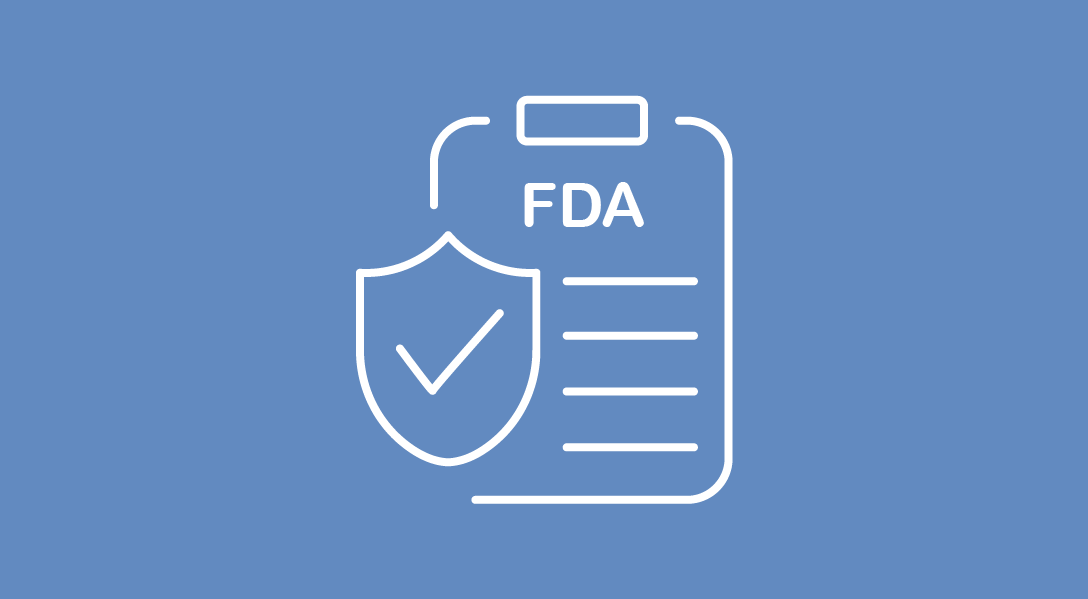FDA Approves Adjuvant Ribociclib Plus AI Therapy for HR+, HER2- Breast Cancer
The Food and Drug Administration approved ribociclib plus an aromatase inhibitor for hormone receptor (HR)–positive, HER2-negative stage II and III early breast cancer that has a high risk of recurrence.

The FDA approved adjuvant ribociclib (Kisqali) plus an aromatase inhibitor (AI) for patients with hormone receptor (HR)–positive, HER2-negative stage II and III early breast cancer that has a high risk of recurrence, including those with node-negative disease, according to an announcement from Novartis, the manufacturer of ribociclib.1
The approval is based on data from the phase 3 NATALEE trial (NCT03701334), in which the combination demonstrated a statistically significant and clinically meaningful improvement in invasive disease-free survival (iDFS) in patients with stage II or III hormone receptor–positive, HER2-negative early breast cancer vs endocrine therapy alone.1
"The FDA approval of [ribociclib] for this early breast cancer population, including those with N0 disease, is a pivotal moment in improving our approach to care," Dennis J. Slamon, MD, director of Clinical/Translational Research, UCLA Jonsson Comprehensive Cancer Center and chairman of the Board of Translational Research In Oncology and NATALEE trial lead investigator, said in a news release.1 "Today's approval allows us to offer treatment with a CDK4/6 inhibitor to a significantly broader group of people as a powerful tool that, combined with endocrine therapy, can help further minimize their risk of cancer returning."
Findings from the second interim analysis, which were presented at the 2023 ASCO Annual Meeting, demonstrated that patients who received the combination (n = 2549) achieved a 3-year iDFS rate of 90.4% vs 87.1% in patients who received endocrine therapy alone (n = 2552; HR, 0.748; 95% CI, 0.618-0.906; P = .0014). Median follow-up for iDFS was 27.7 months, and the benefit proved consistent across patient subgroups, regardless of disease stage, menopausal status, or nodal status.2 The final iDFS analysis was performed with a median follow-up of 33.3 months and showed sustained iDFS benefit with ribociclib (HR, 0.749; 95% CI, 0.628-0.892; P =.0006).3
Updated findings from an exploratory analysis that was performed with an additional 10.9 months of follow-up were presented at the 2024 ESMO Congress. The results demonstrated that at a median follow-up of 44.2 months in the intention-to-treat (ITT) population, the 3-year iDFS rates were 90.8% with ribociclib plus an AI vs 88.1% with an AI alone. At 4 years, the respective iDFS rates were 88.5% vs 83.6% (HR, 0.715; 95% CI, 0.609-0.840; P <.0001).4
"With this approval, we are redefining treatment options for a broader population of people impacted by breast cancer and facing the persistent risk of recurrence," Victor Bultó, president, US, Novartis, said.1 "We continue to transform cancer care with [ribociclib], building on its established profile in the metastatic setting and now helping a wide range of people as they strive to stay cancer-free following an early-stage diagnosis."
References
1. FDA approves Novartis Kisqali to reduce risk of recurrence in people with HR+/HER2- early breast cancer. News release. Novartis. September 17, 2024. Accessed September 17, 2024. https://www.prnewswire.com/news-releases/fda-approves-novartis-kisqali-to-reduce-risk-of-recurrence-in-people-with-hrher2--early-breast-cancer-302250689.html
2. Slamon DJ, Stroyakovskiy D, Yardley DA, et al. Ribociclib and endocrine therapy as adjuvant treatment in patients with HR+/HER2- early breast cancer: primary results from the phase III NATALEE trial. J Clin Oncol. 2023;41(suppl 17):LBA500. doi:10.1200/JCO.2023.41.17_suppl.LBA500
3. Hortobagyi G, Stroyakovsky D, Yardley D, et. al. Ribociclib (RIB) + nonsteroidal aromatase inhibitor (NSAI) as adjuvant treatment in patients with HR+/HER2− early breast cancer: final invasive disease–free survival (iDFS) analysis from the NATALEE trial. Presented at: 2023 San Antonio Breast Cancer Symposium. December 5-9, 2023; Abstract GS03-03.
4. Fasching PA, Stroyakovskiy D, Yardley DA, et al. Adjuvant ribociclib plus nonsteroidal aromatase inhibitor in patients with HR+/HER2– early breast cancer: 4-year outcomes from the NATALEE trial. Presented at: 2024 ESMO Congress; September 13-17, 2024; Barcelona, Spain. LBA13.



